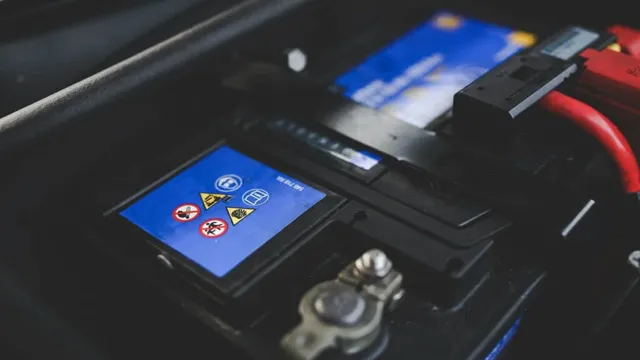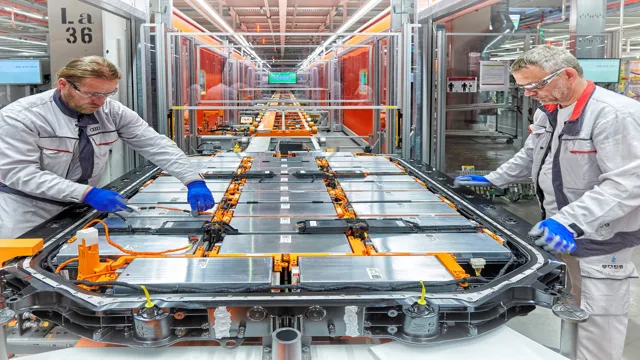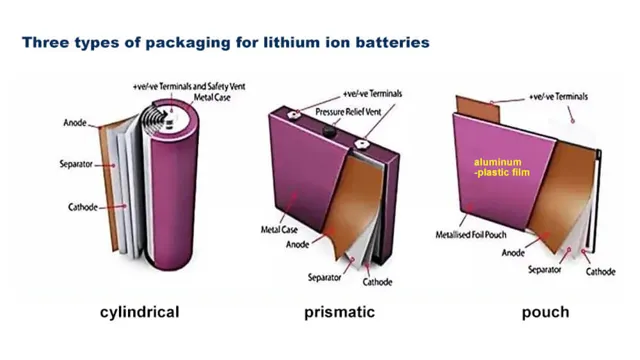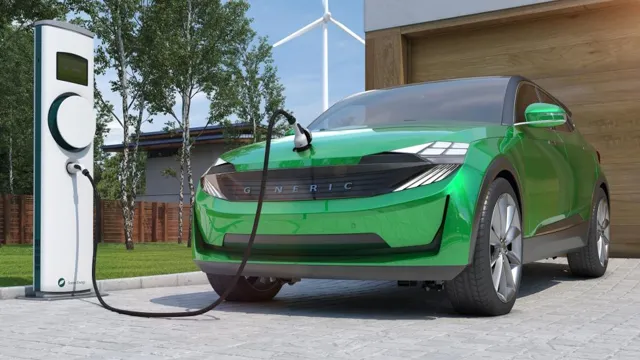The Shocking Truth Behind Electric Car Battery Environmental Impact
Driving a car that does not pollute the environment is everyone’s dream. Electric cars have come to fulfill that dream, and they are gaining more and more popularity with each passing day. Unlike their traditional counterparts, electric cars run on rechargeable batteries that power the car’s electric motors.
However, there have been concerns about the environmental impact of the batteries used in electric cars. In this blog, we will explore the effects of electric car batteries on the environment, including their manufacturing, usage, and disposal, to help you understand the full picture. So, fasten your seatbelts, and let’s dive right in!
Introduction
If you’re considering switching to an electric car, you may be wondering how the battery affects the environment. While electric cars have many benefits, the production and disposal of their batteries have some environmental impacts to consider. One of the most significant effects is the mining of raw materials used in the battery production, such as lithium and cobalt, which can lead to habitat destruction, soil erosion, and pollution.
Additionally, the energy-intensive process of manufacturing electric car batteries contributes to greenhouse gas emissions. However, compared to gasoline-powered vehicles, electric cars still have a substantially lower environmental impact over their lifetime. Additionally, recycling programs are becoming more prevalent for used batteries, which can reduce waste and recover valuable materials.
While electric car batteries do have some environmental effects, their overall benefits make them a more sustainable choice for transportation.
What Are Electric Car Batteries?
Electric car batteries are an essential component of electric vehicles, providing them with the energy they need to run. These batteries work by storing electrical energy which is then used to power the electric motor, enabling the car to move. They are usually made up of lithium-ion cells, which are lightweight and have high energy density, making them ideal for use in electric vehicles.
The batteries are rechargeable, and they can be charged using a charging station or a home charging system. As more people become aware of the benefits of electric vehicles, the demand for electric car batteries is increasing, and there is a need for more efficient and cost-effective battery technologies. With the rapid progress in battery technologies, electric vehicles are becoming more mainstream, offering a cleaner, more sustainable alternative to traditional gasoline-powered vehicles.
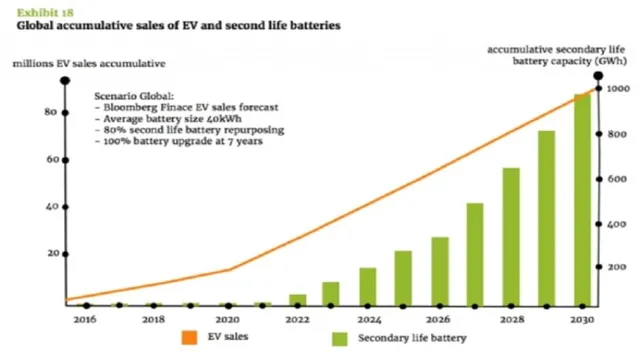
Why Are They Environmentally Friendly?
“Environmentally friendly” Possible paragraph: When it comes to products and services, being environmentally friendly means reducing their negative impact on the natural world as much as possible. This can involve various strategies that aim to conserve resources, minimize waste, prevent pollution, and promote sustainability. Typically, environmentally friendly products and services are designed, manufactured, distributed, used, and disposed of in ways that prioritize ecological responsibility and social well-being.
From organic food to renewable energy, from public transportation to green building, there are many examples of how being environmentally friendly can benefit both the planet and its inhabitants. In this blog post, we will explore why certain products and services are considered to be environmentally friendly, and what makes them stand out from less eco-friendly alternatives. By understanding the principles and practices of environmental responsibility, we can make informed choices and contribute to a healthier and happier world for ourselves and future generations.
Environmental Impact of Electric Car Batteries
Electric car battery environmental effects are a growing concern among consumers who want to make a more sustainable choice for their transportation. While electric cars produce no emissions while on the road, the production and disposal of their batteries can have a significant impact on the environment. The production process involves the extraction of rare metals such as lithium, cobalt, and nickel, which can contribute to water pollution and soil degradation.
Additionally, the disposal of these batteries at the end of their life cycle can pose a challenge as they contain toxic chemicals that can contaminate the soil and water if not properly handled. However, advancements in battery technology have led to the development of more recyclable and sustainable options, and initiatives are underway to establish responsible practices for the production and disposal of electric car batteries. As consumers, by choosing to drive electric cars and supporting eco-friendly manufacturers, we can help mitigate the environmental impact of electric car batteries.
Production Processes
Electric car batteries are seen as an environmentally conscious choice for drivers, but are they really as sustainable as we thought? Production processes for these batteries come at a cost to the environment due to the extraction of minerals such as lithium, cobalt, and nickel from mining activities. The mining process results in soil and water pollution, habitat destruction and displacement of indigenous communities. Additionally, the transportation of these minerals from their extractive regions to the battery production factories increases the carbon footprint of these batteries.
Moreover, the production of these batteries requires significant energy and water consumption, which contributes to greenhouse gas emissions and further depletes natural resources. A solution to minimize the environmental impact of electric car batteries could be to source minerals from mines with lower environmental impacts or that actively work to restore land after mining activities are completed. Alternatively, investing in other renewable energy storage solutions could prove to be more sustainable.
Nonetheless, although there is still room for improvement, the production of electric car batteries remains a significant step forward in reducing the carbon footprint of the automotive industry.
Mining for Raw Materials
When it comes to electric car batteries, one of the biggest concerns is the environmental impact of mining for the raw materials needed to produce them. Mining can have devastating effects on the environment, including habitat destruction, soil erosion, water pollution, and the release of harmful chemicals and greenhouse gases. Additionally, many of the materials used in electric car batteries are rare and difficult to extract, leading to increased demand and higher prices.
However, some companies are working to develop more sustainable methods of mining and sourcing these materials, such as using recycled materials or developing new mining technologies that minimize environmental damage. Ultimately, it will be important to weigh the benefits of electric cars against their ecological costs in order to make informed decisions about the future of transportation.
Disposal of Batteries
Electric car batteries are an essential component of any electric vehicle. However, as much as they are important, they pose a significant environmental risk if they are not disposed of properly. The materials used in these batteries, such as lithium, cobalt, and nickel, can be harmful to the environment if not adequately recycled or disposed of.
These materials can contaminate the soil and water, and they can also cause air pollution when they are incinerated. The production of these batteries also requires a significant amount of energy, which contributes to greenhouse gas emissions. Hence, it is essential to properly dispose of electric car batteries to minimize their environmental impact and avoid potential health risks.
Recycling the batteries can help recover valuable materials and reduce the need for new mining and production of these materials. Therefore, it is crucial to promote proper disposal and recycling of electric car batteries to protect the environment and promote sustainable transportation.
Solutions to the Environmental Impact
Electric cars have often been touted as a more environmentally-friendly alternative to traditional gas-powered cars. However, many people are not aware of the environmental impact of the batteries used in these cars. Electric car batteries are made up of a complex mix of metals and minerals, many of which are mined in environmentally damaging ways.
Additionally, once these batteries have served their purpose, they often end up in landfills where they can leak toxic chemicals. However, there are solutions to these problems. For one, car manufacturers can prioritize the use of recycled materials in their batteries to reduce the need for new mining.
Additionally, proper disposal methods, such as recycling or repurposing, can be implemented to minimize the amount of battery waste that ends up in landfills. By taking these steps, we can help mitigate the environmental impact of electric car batteries and work towards a more sustainable transportation system.
Recycling and Reusing Batteries
Recycling and Reusing Batteries When it comes to batteries, recycling and reusing them is the key to minimizing their environmental impact. Discarded batteries can release toxic chemicals into the soil and groundwater, which can cause harm to both humans and wildlife. By recycling batteries, not only can we prevent the release of harmful substances, but we can also recover valuable metals and materials that can be used to make new batteries or other products.
Some companies even offer programs to incentivize recycling, such as discounts on future purchases or gift cards. Additionally, reusing batteries can also have a significant impact on the environment. By using rechargeable batteries, we can reduce the number of single-use batteries that end up in landfills, ultimately conserving resources and reducing waste.
Overall, making a conscious effort to recycle and reuse batteries is a simple but powerful way to contribute to a more sustainable future.
Innovation in Battery Development
Battery development plays a crucial role in the advancement of sustainable technologies. With the increasing concern about climate change, researchers are focusing on developing batteries that offer a less environmental impact. Innovations in battery chemistry have made it possible to achieve higher energy density, longer lifespan, and faster charging times.
These solutions can help to reduce our reliance on fossil fuels and promote the development of renewable energy technologies. Lithium-ion batteries are the most commonly used batteries, but their production and disposal have raised environmental issues. To address this, researchers are exploring alternative battery chemistries, such as solid-state batteries that use solid electrolytes instead of liquid or gel ones.
These batteries reduce the risk of fire, eliminate the use of flammable liquid electrolytes, and do not require heavy, expensive cooling systems. Furthermore, their production process is more eco-friendly. Additionally, the recycling of batteries helps to reduce waste and the environmental impact of the manufacturing process.
As a result of this research, we can expect to see a more sustainable future with cleaner forms of energy to power our lives.
Conclusion
In conclusion, it’s clear that electric car batteries have environmental effects that need to be addressed. But let’s not forget that the alternative of using traditional fossil fuels for transportation has even more detrimental effects on our planet. Through continued research and development, we can work towards creating more sustainable and eco-friendly battery technology.
So, let’s keep driving towards a brighter (and cleaner) future!”
FAQs
What are the environmental benefits of an electric car battery?
Electric car batteries produce zero emissions, which greatly reduces the pollution that traditional gasoline cars generate.
How does the production of electric car batteries impact the environment?
The production of electric car batteries does have some negative environmental impacts due to the mining and manufacturing processes, but they are still much lower than the environmental cost of producing gasoline cars.
Can electric car batteries be recycled?
Yes, electric car batteries can be recycled. In fact, recycling the batteries reduces the amount of raw materials needed to produce new batteries and reduces the environmental impact of battery production.
What is the lifespan of an electric car battery?
The lifespan of an electric car battery varies depending on usage and driving conditions, but it generally lasts between 8 to 10 years. After that, the battery can either be replaced or recycled.
